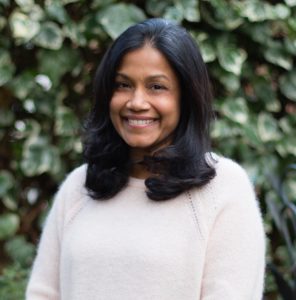BOLD BEGINNINGS: A Mums In The Wood Commentary by Rajni Jayasekera, founder of Mums in the Wood
 In January 2017, Ofsted was commissioned to prepare a report with aim of providing fresh insight into leaders’ curriculum intentions, how these were implemented and the impact on outcomes for pupils.
In January 2017, Ofsted was commissioned to prepare a report with aim of providing fresh insight into leaders’ curriculum intentions, how these were implemented and the impact on outcomes for pupils.
Ofsted recently published its Bold Beginnings report which shone a spotlight on the reception year and the extent to which a school’s curriculum for four and five year olds prepares them for the rest of their education and beyond. It recommended the introduction of formalised testing and assessment at the beginning of the reception year rather than the end as well as more formalised learning throughout the reception year.
Mums in the Wood founder Rajni Jayasekera gives us her opinion:
“There has been a lot of outrage regarding the Ofsted recommendations and whilst I understand that the purpose of the recommendations is to try to raise the overall standard of achievement in all schools and help structure the curriculum (which is currently almost non existent at reception level) so that all schools have a standard to aspire to or achieve in the three Rs (reading, ‘riting and ‘rithmetic), I am not sure that this can be achieved just by introducing an ethos of “high expectations from the start” at reception level. However, it must be borne in mind, that when questioned, the Chief Inspector, Amanda Spielman, did seem to be genuinely concerned about introducing a “balanced curriculum” that did take into account the varying ability levels and development styles of different children.
She had this to say about the curriculum, ‘A good school achieves a careful balance. Balance is the constant challenge when schools plan. Time is limited. Therefore choices need to be made about what to do when, how much depth to pursue, which ideas to link together, what resources to draw on, which way to teach, and how to make sure all pupils are able to benefit as each new concept, construct or fact is taught. ‘Most importantly, these decisions must be rooted in a solid consensus about what education should deliver for each pupil. What is the body of knowledge that a child needs so that they will flourish in the future and not be left behind?’
Although it is heartening that the Inspector is clear that there should be a balance though, the overall implication seems to be that this ‘body of knowledge’ is only rooted in literacy and mathematics which clearly should not be the case.
It is of paramount importance that consideration is given to the very basic fact that children develop at different paces, in different ways and have different strengths and amidst all the outrage, it must not be forgotten that to hold back a child who is desperate to learn more, is as bad as pushing a child who has not yet attained the right level of maturity to understand or process the introduction of a structured curriculum.
It is never too early to teach a child, but how that teaching is done, will be key to how they view learning as they grow.
Perhaps the best way forward would be not only to introduce a structured approach to learning but also to include plenty of opportunity to explore, play and gather knowledge. Whether there will be resources to provide access to both areas in healthy measure, remains to be seen. It is fine to have a structured curriculum at reception level, but how it is taught is what should be looked at most carefully.
Children have to be allowed to play, to learn through exploration and to develop a love of learning and an enjoyment of gaining new knowledge. If this knowledge should then be tested, the decision as to whether that is good or bad, will again depend on how that testing is carried out and whether or not the children are pressured. It is the method of testing that will be adopted, which will determine whether it is for their betterment or to their detriment. The Chief Inspector’s responses to interviews, thankfully so far, seems to reflect this.
Again, there is nothing wrong with formalised testing if the children are enjoying learning and are learning through a combination of formal means as well as through play. The key is that one is not sacrificed or carried out to the exclusion of the other.
What absolutely should not happen (and of this, there is a very real danger), is that there is then a knock on effect where the assessment/testing of a 4/5 year old upon entering reception, leads to creating a competitive environment where parents feel a need to tutor or coach children from an even earlier age so that they attain the highest levels of performance possible when tested.”
What do you think? Comment below and let us know.
You can read the Ofsted report here: https://www.gov.uk/government/uploads/system/uploads/attachment_data/file/663560/28933_Ofsted_-_Early_Years_Curriculum_Report_-_Accessible.pdf
The report also seems to have been influenced by comments in previous years made by the very colourful but now retired, Chief Inspector of Ofsted, Sir Michael Wilshaw on nursery education. His comments can be read here: https://www.daynurseries.co.uk/news/article.cfm/id/34/should-there-be-more-formal-testing-of-children-at-nursery










